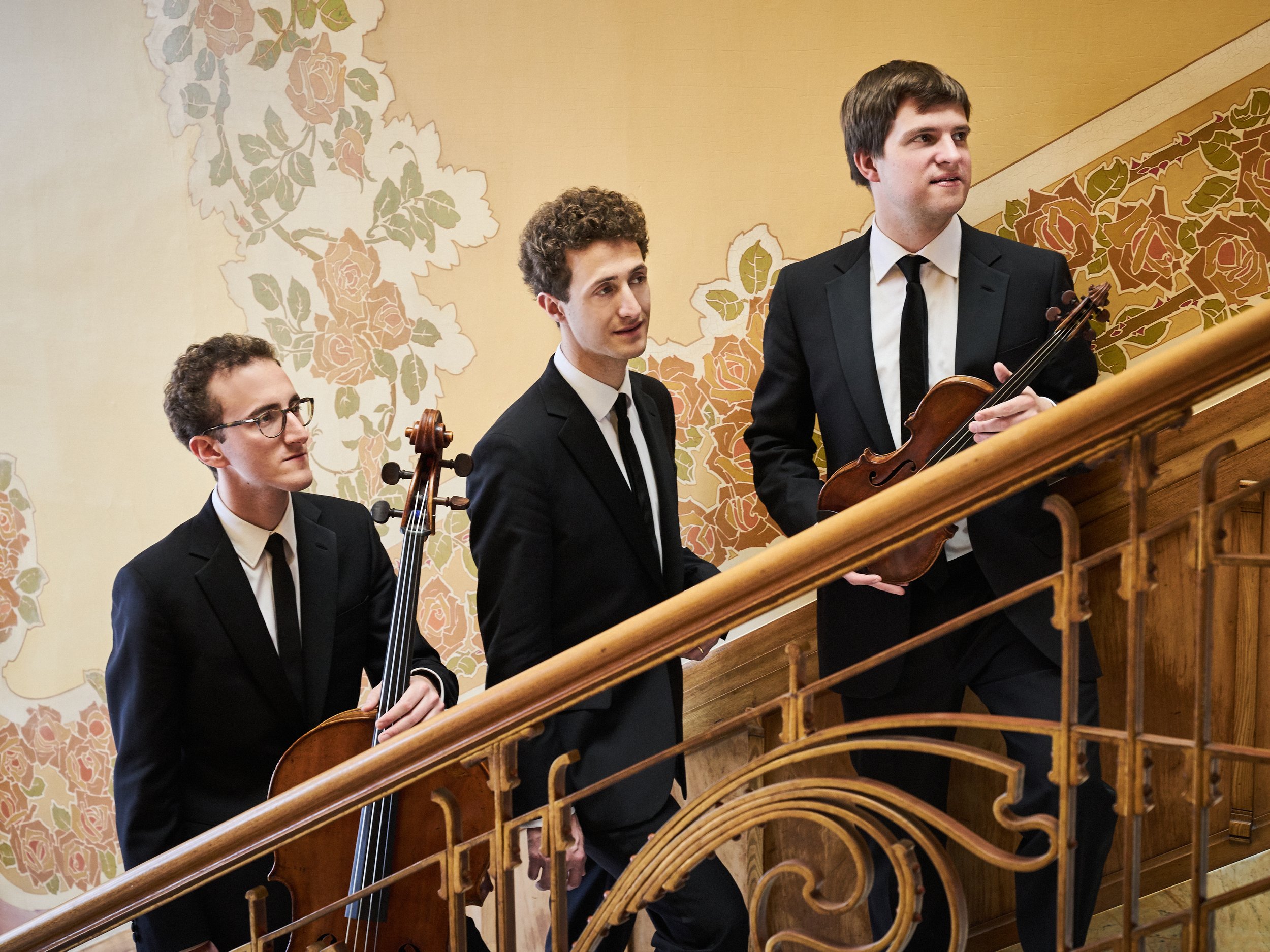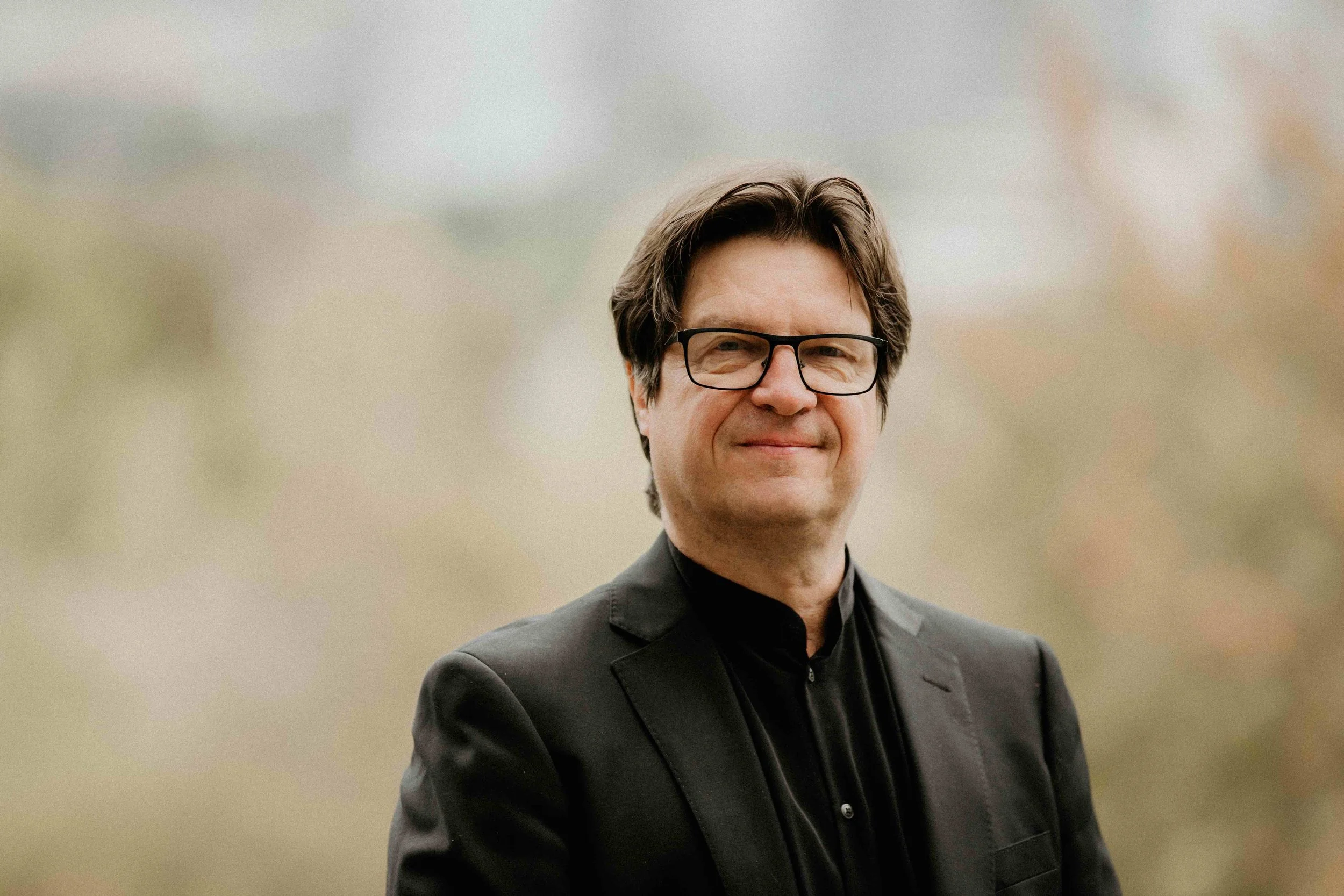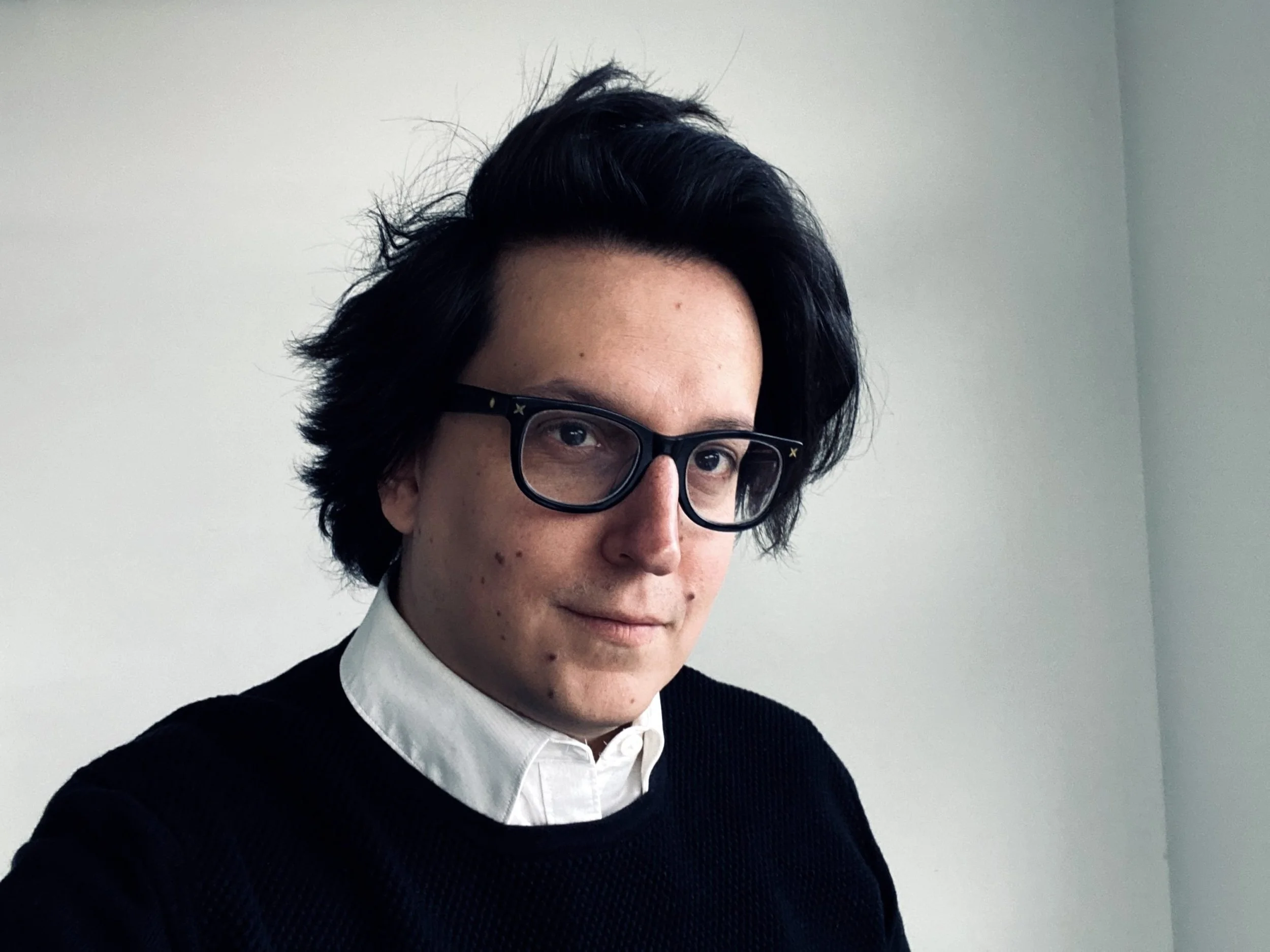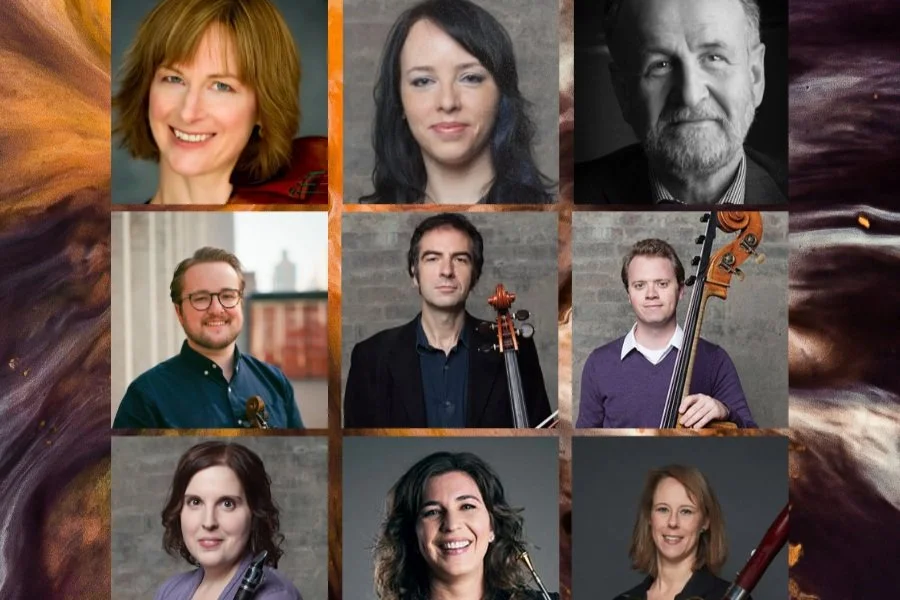The Busch Trio pays tribute to namesake—and builds a "church" to music outside of Amsterdam
Pianist Omri Epstein explains how the young threesome draws connections between Ravel, Shostakovich, and Mozart at Friends of Chamber Music concert
Busch Trio. Photo by Kaupo Kikkas
The Friends of Chamber Music present the Busch Trio at the Vancouver Playhouse on November 7 at 7:30 pm
SCANNING THE OFFICIAL Busch Trio biography, one thing stands out among the usual recitation of schools attended, awards won, and records made: by their own account, brothers Omri and Ori Epstein and their longtime friend Mathieu van Bellen are so devoted to the cause of chamber music that they “live like monks in a monastery”.
This is not just an instance of gentle hyperbole: they own a church.
“Have you had a chance to read about MuziekHaven?” asks the older Epstein, Omri, in a Zoom interview from his spartan Amsterdam garret.
We have not, but tell us more.
“It’s a church just outside of Amsterdam, north of Amsterdam, that we’ve raised more than a million Euros to purchase, as a trio, in order to set up a chamber-music hub,” the pianist explains of the hub in Zandaam. “We see it as a place where chamber-music groups can come, reside for a few days, rehearse, and record. We also run concerts every month. We run workshops there, and we run residencies there, to draw both musicians and audiences into the process of making music.
“Audiences see us looking very presentable and giving our perfect concerts in our perfect suits, but actually our life in music is mostly in the rehearsal space,” Epstein continues. “In the practice room, that’s where we exercise our right to be a musician. That’s really where we live and love the music, where we experience it, where we fight for it.
“The final product is a little drop in the ocean as far as the general process of personal development in music. And so we see MuziekHaven as a place where the focus in on rekindling that belief and passion by bringing musicians together and bringing audiences to witness the life of a musician. Audiences don’t often see that; they don’t see that we shout and fight and struggle and practice. So we want to show them the great depth of music, and how it’s achieved: all the hours that we put in, and how valuable it is to us, personally. We want them to really see the craftsmanship of making music, and chamber music in particular.”
The Israel-born Epstein brothers each started their chamber-music journey at around the age of six, although cellist Ori is almost seven years younger than his pianist sibling. Omri met van Bellen, the trio’s violinist, during his undergraduate years, and although there have been hiccups along the way—“We are hot-blooded Mediterraneans,” Epstein says, as opposed to their more “reserved” Dutch friend—it was clear from the start that their musical bond was undeniable.
In addition to their shared sensibility, however, there’s another factor, one that gave the trio its name and, arguably, its sense of purpose: van Bellen’s violin, a 1783 G.B. Guadagnini instrument that had once belonged to the near-legendary chamber musician Adolf Busch.
“To be perfectly honest, the violin came first,” Epstein notes, saying that the three young musicians had been struggling to name their ensemble before settling on this physical connection to one of the greats of their genre. “But we soon learned more about Busch and what he stood for, whether it was renouncing his German citizenship in 1933 when he wasn’t Jewish himself; vowing never to play in Germany until Hitler and his colleagues were dead; taking on refugees from Europe and setting up his Busch Chamber Players in London; setting up the Marlboro Festival; sacrificing his career in a significant way in order to stand by his values and principles; and devoting his life to chamber music.”
Busch, he adds, was also a pioneer in recording late Beethoven and late Schubert, “and those recordings, until today, are in some respects still unsurpassed. It’s pretty incredible to look at Adolf Busch through this wider lens—and, absolutely, we take a great deal of inspiration from all these different elements of what he stood for.”
Despite its members’ youth, the Busch Trio itself has already recorded exemplary versions of many small-scale masterpieces, including a four-CD box set of Antonín Dvořák’s complete chamber music with piano. For the ensemble’s upcoming Friends of Chamber Music concert, the three will draw on their latest effort, which features two very different but equally intense compositions: Maurice Ravel’s Piano Trio in A Minor and Dmitri Shostakovich’s Piano Trio No. 2 in E Minor. Also on the bill will be Wolfgang Amadeus Mozart’s Piano Trio in B-flat Major.
Epstein waves away the notion that the Shostakovich and Ravel scores were chosen to illuminate this particularly fraught moment in history.
“The connection is not new,” he asserts. “Ravel was writing his trio right at the start of the First World War in 1914. It was a time of great development, excitement, and opportunity—and, with this looming war, a great deal of uncertainty and anxiety. Ravel was asked to join the French army as an ambulance driver; he had three weeks before leaving, and as he wrote in a letter to Stravinsky, ‘I’ve never written so quickly, and the ideas are just erupting from me.’ And so it is with this trio: it’s drawing on Ravel’s wide, wide range of interests and inspirations….It’s almost a musical diary of his own personality.
“And then we have the Shostakovich, which was written in 1944 at the end of the Second World War, and is at the other side of the spectrum. It is not excited or forward-looking; it is talking of destruction and despair and how we manage to break down any sense of belonging, identity, clarity, or conviction. He’s writing from a place where it cannot get any worse. The news of the gas chambers is trickling down into Russia, and the human cost of it all, and one cannot imagine worse things than humans killing each other.”
Nonetheless, Epstein finds a measure of hope in the passacaglia that Shostakovich built into his work’s third movement. “Normally a passacaglia is a descending bass line of eight bars,” he explains. “But if you look at this passacaglia of Shostakovich’s, what is descending is in fact the soprano in the right hand of the piano, and the bass is making an ascent. So while ‘passacaglia’ originally stood for ‘Whatever lives must die,’ Shostakovich has created a passacaglia upside-down, which is ‘Whatever is dead must have a renewal.’”
A positive message is also encoded in Mozart’s score.
“The history of the key of B flat in music tradition is that it stands for pure love, hope, and the aspiration for a better world,” the pianist says, citing the 18th-century critic and composer Christian Schubart. “So, yes, we know the horrors. Yes, we know the terrible things we’re capable of. But we also know and must remember the wonderful things that humans are capable of: the incredible wisdom and creativity and goodness that we can bring to each other’s lives. And somehow Mozart really projects that; it’s almost like a summary of the whole program, if you like.”
Optimism in the midst of darkness, the uplift of youthful energy, and the intimacy of the chamber-music experience: while Epstein stresses that the music itself is eternal, these may be exactly what we need at this moment in time.














